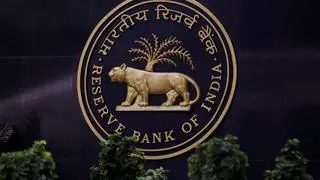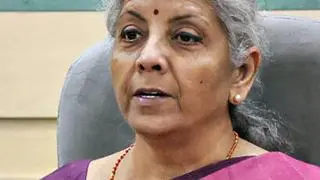Prorogation of Lok Sabha and Rajya Sabha means the government cannot promulgate an ordinance that can negate striking down of the Electoral Bond Scheme by the Supreme Court, sources said on Friday. The effect of the end of the Electoral Bond Scheme would be the re-infusion of black money in the system, sources said.
On Thursday, the Apex Court struck down the Electoral Bond Scheme as ‘un-constitutional’ and asked the issuer bank to submit details of bond purchasers to the Election Commission of India. Later, the Commission will make the list of donors public. The entire exercise has to be competed by March 13.
When asked about the possibility of promulgation of an ordinance, a source ruled out this possibility altogether as both Houses have been prorogued by the President on February 15. At the same time, sources also feared return of more black money in the circulation. “The scheme was brought to ensure white money funding for the election. Since there is no scheme now. This means the return of good old bad days when election funding was done through black money,” a source said while claiming that the bond scheme achieved 100 per cent white money funding. There is no estimate of black money funding in the scheme and sources said now such an exercise would be more difficult to estimate.
The scheme was launched with legal assurance was given to keep the identity of donors under wrap. This was provided through a provision in the Finance Act 2018. Since that protection has gone, what will be done now, the source said: “We have to study the order in detail and then follow up action can be initiated. All options are open.”
The scheme launched in 2018, collected over ₹16,500 crore in 30 tranches with the last one competed last month. The scheme, introduced in 2018, aims “to ensure clean, tax-paid money is coming into the system of political funding through proper banking channels.” No commission, brokerage or any other charges for the issue of a bond shall be payable by the buyer against the purchase of the bond. Also, no GST or any other taxes/cess are charged to the purchaser on purchasing electoral bonds.
According to the notification, these bonds are to be purchased by a person who is a citizen of India or incorporated or established in India. An individual can buy electoral bonds singly or jointly with others. Only the Political Parties registered under Section 29A of the Representation of the People Act, 1951 (43 of 1951) and which secured not less than one per cent of the votes polled in the last General Election to the House of the People or the Legislative Assembly of the State, shall be eligible to receive the electoral bonds. These will be encashed by an eligible political party only through a Bank account with the Authorized Bank.
Such a bond is a bearer instrument in the nature of a Promissory Note and an interest-free banking instrument. These can be issued/purchased for any value, in multiples of ₹1,000, ₹10,000, ₹1,00,000, ₹10,00,000 and ₹1,00,00,000. The purchaser would be allowed to buy an electoral bond(s) only on due fulfilment of all the extant KYC norms and by making payment from a bank account. It will not carry the name of the payee.







Comments
Comments have to be in English, and in full sentences. They cannot be abusive or personal. Please abide by our community guidelines for posting your comments.
We have migrated to a new commenting platform. If you are already a registered user of TheHindu Businessline and logged in, you may continue to engage with our articles. If you do not have an account please register and login to post comments. Users can access their older comments by logging into their accounts on Vuukle.